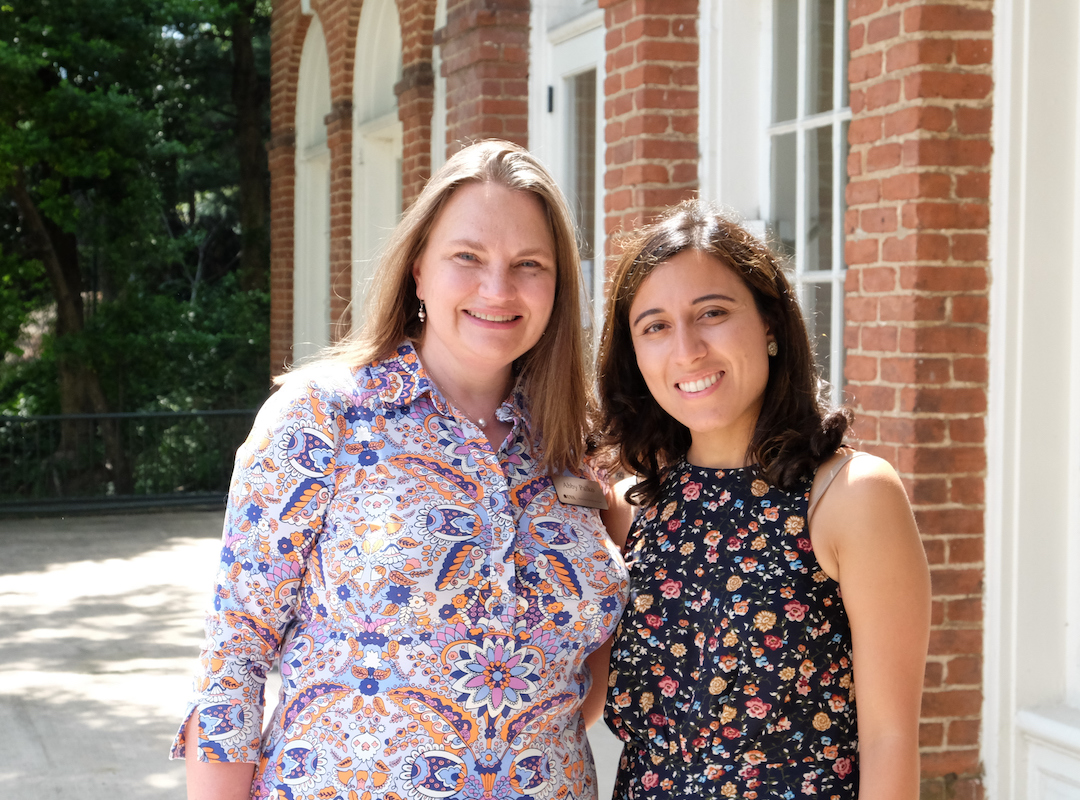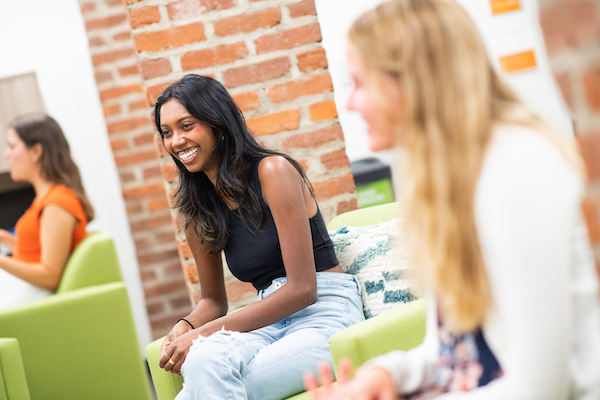
Ivana Brancaccio served as the Greer Fellow at the Women’s Center from 2020 to 2022, while pursuing her MBA at Darden. Ivana’s work at the Women’s Center included working with Women’s Center Director Abby Palko on “COVID-19 and its Impact on University Life,” the report submitted to UVA leadership in September of 2021 by the University’s Women’s Leadership Council. We talked with Ivana about the new perspectives she gained being a student again after years in the workplace.
How did you come to be involved with the Women’s Center?
I worked as a communications staffer on Capitol Hill before starting business school and am still passionate about women’s issues related to hidden work that women do in the economy, whether it’s child-caring or caretaking in general. This is an issue that my former boss, Senator Jacky Rosen (D-NV), created a task force on and is still trying to get bipartisan support around. Being a 1st-generation college student and a woman who is first in my family to attend college, that intersectionality has always been interesting to me. When I applied for the Greer Fellowship in the Women’s Center in 2020, I knew there was a lot that needed to get done in terms of addressing the buffet of different longstanding inequities that were coming to a head at that time. I wanted to be proactive and contribute through this lens of women in the workplace and what women were experiencing, working from home, having to take on more childcare and caretaking responsibilities during the pandemic.
What forms of support have been meaningful to you?
Mental health support has been really helpful. At Darden the intense workload can be intimidating and bring up a lot of anxieties, and as a 1st-gen student there are social anxieties around being in such an affluent setting. I believe access to mental health services is so important during all stages of life but especially while in school. I would often talk to our school's mental health care provider, whom I highly recommend.
Outside of the school setting, you’re in a work-life routine and you have a set of friends that you’re seeing regularly. In graduate school, you’ve left the 9-to-5 routine of the workplace and the familiar incentive system where you get rewarded every so often for the hard work that you’re doing. In a school setting, everyone’s doing hard work and there’s no reward system that matches those outside the school. There are also mental health challenges that come with shifting expectations and “switching up the settings” of your life while you are in a new social setting without your established social supports, too.
How has your identity shaped the experiences and relationships that you’ve had in your education and career?
Ten years ago when I was an undergrad, identity as a 1st-gen college student wasn’t something that you necessarily talked about. It wasn’t something to lean into. It has been refreshing to revisit that identity in graduate school and to celebrate the resiliency that comes with being a 1st-gen student. I’ve recognized the challenges and how they fit contextually, how they might translate into an academic setting or in a social setting while I’m back in school. That’s been empowering.
My identity has impacted my professional relationships as I have built great relationships with UVA leadership and explored ways I can give back and have the support of the school administration around me, too. I helped create student-led 1st-gen initiatives in the graduate schools at each of UVA’s 12 schools. Here at the Women’s Center, doing a white paper on being 1st-gen and being a woman has allowed me to be vulnerable and it has been empowering at the same time. I’ve had the opportunity to reflect on my identity and see the potential that it can bring by opening the doors for others who are 1st-gen who might be kind of facing similar challenges in this environment.
Another project that ties in to my 1st-gen identity has involved research on the intersectionality of being 1st-gen and being a woman and the kinds of hidden work that women do as 1st-gen college students. They face concerns about transferring that knowledge that they take when they break away from their families for the first time. They experience guilt entering the college setting to invest in themselves. They feel that they need to take care of their families in perpetuity.

